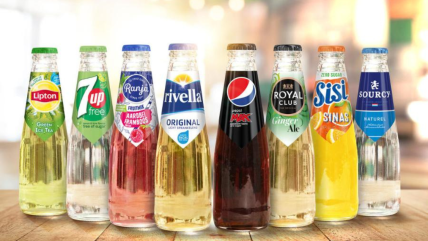
Denmark-based drinks group Royal Unibrew expects an improvement in its volumes in 2024 after seeing price rises hit underlying demand last year.
In 2023, the Faxe brand owner saw its volumes fall 3% on an organic basis as moves to increase prices dampened unit sales.
Royal Unibrew has forecast “flattish” volumes for 2024, with CEO Lars Jensen expecting the company to gain share on the back of “good growth momentum”.
The company saw its organic revenue rise 4% in 2023 and is forecasting a “low- to mid-single digit” increase this year amid a “positive price-mix”.
Royal Unibrew expects to increase prices again but not at the same rate as last year.
“The general picture of pricing – and there’s very different windows for each of the countries – is that we have closed the gap between the cost increases and the price increases, apart from Norway and Sweden, where we have closed a part of the gap and have an extra round for the next window to close the gap,” Jensen said.
In 2023, Royal Unibrew generated a net revenue of DKr12.93bn ($1.8bn), versus DKr11.49bn a year earlier. On an organic basis, net revenue was up 4%.
EBIT stood at DKr1.64bn, compared to DKr1.52bn a year earlier, growing 7% organically.
Nevertheless, the company’s EBIT margin dipped from 13.2% to 12.7%, amid higher sales, distribution and production costs.
In its home market, Royal Unibrew is having to move some of its production as it has “high utilisation” of its lines. The company is shifting that portion of its manufacturing to the Netherlands and Finland.
Jensen said: “We have inefficiencies in our current network where we are spending too much money on logistics and there are customers who do not get the products we have.”
The group is expanding production capacity, in part through M&A, including its acquisition of a facility from Italy’s Birra Castello. However, Jensen told investors that Royal Unibrew is only starting to use the San Giorgio plant and it will not contribute “a lot to efficiency” in 2024. “When we get into next year, 2025, you should see synergies from San Giorgio,” he added.
To drive a “higher predictability” on costs, Royal Unibrew has installed solar panels at its facilities in Denmark, Italy and the Baltics. “We are less dependent on the fluctuations in the energy prices because we have a share with which is produced by ourselves,” Jensen added.



